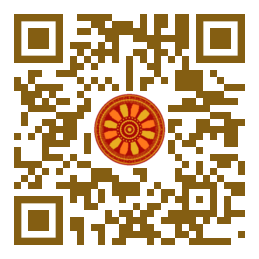
:: International Transaction Journal of Engineering, Management, & Applied Sciences & Technologies
http://TuEngr.com

ISSN 2228-9860
eISSN 1906-9642
CODEN: ITJEA8
FEATURE PEER-REVIEWED ARTICLE
Vol.16(2) (2025) |
The Academic Cobra Effect: Perverse Incentives and Unintended Consequences of Metric-driven Research Publishing
 Bhattraradej Witchayangkoon (Department of Civil Engineering, Thammasat School of Engineering, Thammasat University, Rangsit, Pathumtani, THAILAND), and
Bhattraradej Witchayangkoon (Department of Civil Engineering, Thammasat School of Engineering, Thammasat University, Rangsit, Pathumtani, THAILAND), and
Kritsada Anantakarn (Faculty of Engineering and Architecture, Rajamangala University of Technology Tawan-ok, Uthenthawai Campus, Bangkok, THAILAND).
Discipline: Multidisciplinary (Research publishing).
doi: 10.14456/ITJEMAST.2025.14
Keywords: Academic Publishing; Scopus journal; APC; DORA; JIF; Q1 journal; Q2 journal; Q3 journal; Q4 journal; CiteScore; Research assessment; Journal-level metrics; Scientific quality; SNIP; Ranked journal; SJR; Article-level metrics; Journal-based metrics; SCImago; Journal Rank; Gaming citation metrics; Altmetrics; Incentive research; Fee-driven incentive of APC; Salami slicing of research; Publish-or-perish; OA.
AbstractThis study uses the economic idea of the "Cobra Effect," which describes how a good-intentioned incentive can actually worsen a problem rather than improve it, in relation to the current landscape of academic publishing. We argue that the intense pressure on researchers to publish in Q1-Q4 Scopus®-indexed journals exemplifies the Cobra Effect. The goal of this incentive was to promote high-quality research, but instead, it has resulted in an excessive number of publications - the academic equivalent of breeding cobras. This situation, influenced by how institutions assess researchers and their career advancement, acts like a modern bounty. Consequently, this has triggered a series of negative outcomes akin to breeding cobras for a reward, including the emergence of predatory journals, fragmenting research into smaller parts, citation cartels, and exploiting Article Processing Charge (APC) models. This scenario has overwhelmed the publishing system, reduced the significance of genuine scientific achievements, and introduced various new challenges. The global academic community now faces the task of learning from this narrative. The unforeseen consequences include a drop in scientific quality, loss of trust, a lot of wasted money, and burnout among researchers. They must shift away from rewarding the mere act of producing a "dead cobra" (a publication in a ranked journal) and instead focus on what really matters: fostering a healthy, reliable, and impactful scientific environment. Fixing this systemic issue needs a major change from focusing on journal-level metrics to assessing articles on an individual basis (article-level metrics (altmetrics)) and following the principles outlined in the San Francisco Declaration on Research Assessment (DORA).Paper ID: 16A2G
Cite this article:
Witchayangkoon, B., and Anantakarn, K. (2025). The Academic Cobra Effect: Perverse Incentives and Unintended Consequences of Metric-driven Research Publishing. International Transaction Journal of Engineering, Management, & Applied Sciences & Technologies, 16(2), 16A2G, 1-13. http://doi.org/10.14456/ITJEMAST.2025.14
References
- Binfield, P. (2009). Article-Level Metrics at PLoS - what are they, and why should you care? (Video). University of California, Berkeley. http://www.youtube.com/watch?v=Z05j5fsVfHA
- Chakrabarti, S. S., Kaur, U., Patwardhan, K., & Chakrabarti, S. (2024). Assessing Faculty for Universities: Beyond Publishing Metrics. In Scientific Publishing Ecosystem: An Author-Editor-Reviewer Axis (pp. 105-122). Singapore: Springer Nature Singapore. DOI: 10.1007/978-981-97-4060-4_6
- Della Sala, S. (2022). Plan S and the Cobra effect. The Psychologist, 35, 2-3. https://thepsychologist.bps.org.uk/volume-35/june-2022/plan-s-and-cobra-effect
- Erduran, S. (2023). Cobra Effect in Science Education?. Sci & Educ., 32, 877-878 http://doi.org/10.1007/s11191-023-00453-4
- Inamdar, S., & Parveen, S. (2020). The National Education Policy (NEP) 2020-Galvanizing the rusting higher education in India. Vidyawarta Interdisciplinary Multilingual Peer-Reviewed Journal, 9, 229-233.
- Minnaar, J. (2022). The Cobra Effect: Never Invent Rules From The Ivory Tower. http://www.corporate-rebels.com/blog/leaders-rules Accessed January 2025.
- OLS. (2025). San Francisco Declaration on Research Assessment - DORA. Ouvrir la Science. http://www.ouvrirlascience.fr/san-francisco-declaration-on-research-assessment-dora
- Rajgor. (2025). Cobra Effect. http://x.com/meetMrajgor/status/1942281810358276324 Accessed 2025.
- SFDORA. (2025). San Francisco Declaration on Research Assessment. http://sfdora.org/read
- SFDORA. (2024). DORA badges. http://sfdora.org/resource/dora-badges
- SFI. (2017). Science Foundation Ireland is committed to the principles of the San Francisco Declaration on Research Assessment (DORA). Science Foundation Ireland (SFI).
- USheffield. (2025). DORA: Responsible research assessment. The University of Sheffield. http://sheffield.ac.uk/openresearch/home/dora-responsible-research-assessment
- Wikipedia. (2025). San Francisco Declaration on Research Assessment. http://en.wikipedia.org/wiki/San_Francisco_Declaration_on_Research_Assessment
- World Bank. (2022). Scientific and technical journal articles - Indonesia, Thailand, Malaysia, Vietnam. https://data.worldbank.org/indicator/ip.jrn.artc.sc?end=2022&locations=ID-TH-MY-VN-SG&start=1996&view=chart Accessed January 2025.
- Zein, R. A. (2018). The Cobra Effect, Indonesian Lecturers are Obsessed with the Scopus Index and Despicable Practices towards World-Class Universities. http://world.edu/the-cobra-effect-indonesian-lecturers-are-obsessed-with-the-scopus-index-anddespicable-practices-towards-world-class-universities
Other issues:
Vol.16(1)(2025)
Vol.15(4)(2024)
Archives
Call-for-Papers
Call-for-Scientific PapersCall-for-Research Papers: ITJEMAST invites you to submit high quality papers for full peer-review and possible publication in areas pertaining engineering, science, management and technology, especially interdisciplinary/cross-disciplinary/multidisciplinary subjects.
To publish your work in the next available issue, your manuscripts together with copyright transfer document signed by all authors can be submitted via email to Editor @ TuEngr.com (no space between). (please see all detail from Instructions for Authors)
Publication and peer-reviewed process:
After the peer-review process (4-10 weeks), articles will be on-line published in the available next issue. However, the International Transaction Journal of Engineering, Management, & Applied Sciences & Technologies cannot guarantee the exact publication time as the process may take longer time, subject to peer-review approval and adjustment of the submitted articles.